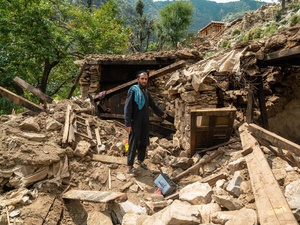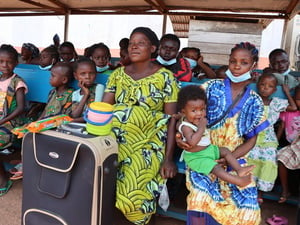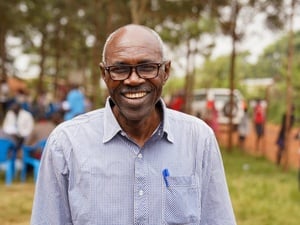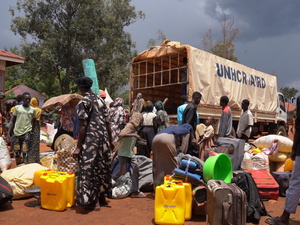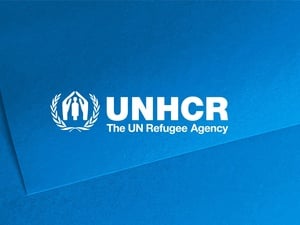Congolese refugees in Uganda prepare to move
Congolese refugees in Uganda prepare to move
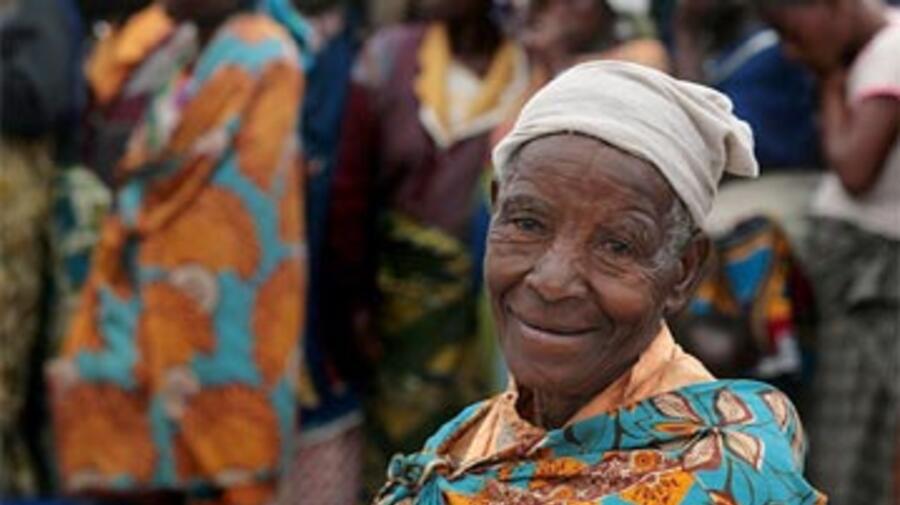
Laurencia Nyirabanzi's fled to Uganda when her three sons were killed. The 70-year-old Congolese refugee has been holding the surviving family together.
NYAKABANDA, Uganda, December 11 (UNHCR) - Grandmother Laurencia Nyirabanzi has been a tower of strength to her family since they fled to Uganda after her three sons were killed just across the border in the Democratic Republic of the Congo (DRC) by fighters loyal to a renegade military commander.
She, her three widowed daughters-in-law and her eight grandchildren are all victims of the latest outbreak of conflict in DRC's volatile North Kivu province, which pits government troops against forces loyal to renegade commander, General Laurent Nkunda.
The waves of fighting have displaced tens of thousands of people within the province since August and forced several thousand villagers - including 70-year-old Nyirabanzi and her surviving kin - to flee to the Ugandan border town of Bunagana. Some 4,000 now live at the transit centre at Nyakabanda, which was set up by UNHCR some 15 kilometres further inside Uganda.
Families have shelters and security at Nyakabanda, but conditions are basic and there are no schools for children. The government has said the Congolese must move some 300 kms away to the Nakivale refugee settlement, which has received some 4,200 other refugees from the border area in recent weeks.
"The refugees should be catered for in a refugee settlement, where children will have access to schools and all refugees will receive plots of land, free medical care and food," said Walter Omondi, a Ugandan government official in Kisoro district.
"We agree with the government; this reception centre is not a place where the refugees can stay much longer in safety and dignity. It's too close to the border," said Masti Notz, head of the UNHCR emergency team in Kisoro. "They deserve proper assistance, which the government of Uganda, UNHCR and its partners can only give them in Nakivale."
Moving to Nakivale will be a wrench for people like Nyirabanzi, who want to be close to their homes. "I decided to escape immediately after the rebels left my village and I came to Uganda," she said, referring to the attack in October that left her three sons dead. "I could no longer put at risk the lives of my grandchildren and their mothers."
Nyirabanzi's attachment to her native land was so strong over the years that normally when groups of armed men visited, as they often did, she would send her children and grandchildren to safety in other villages or across the border while she stayed behind.
But the murder of her sons was too much. "I am now the only one who can save the rest of my family," Nyirabanzi said, almost with guilt.
Oscar Munyankindi, a father of four, would also prefer to remain near the border. "The situation in Nyakabanda is good and we would like to stay close to our homes, but we understand we have to move," he said, noting food shortages here.
"The end of the year will come soon and we have nothing to celebrate. We are far from our homes and we have nothing to eat," Munyankindi said. "We are hungry, that's our only problem now. We received some food a few days ago, but it is already finished and our children are asking for more. I hope in Nakivale we will not be this hungry."
UNHCR and its partners have provided assistance to tens of thousands of refugees in four separate waves from North Kivu this year. Since December 2006, conflict and military build up in North Kivu have led to a massive population displacement - one of the worst since the end of the civil war in 2003.
Some 405,000 Congolese have been forced from their homes in the province in the past 12 months, including some 170,000 since August. In total, there are some 800,000 IDPs in the province.
As children flew kites nearby, Nyiramanzi mused about the uncertain future. "I am old and I wish I could stay at home, but sometimes life doesn't give you a choice," she said, while adding optimistically: "At least my grandchildren will be far from war. I want them to see joy, not only war."
By Roberta Russo in Nyakabanda, Uganda



